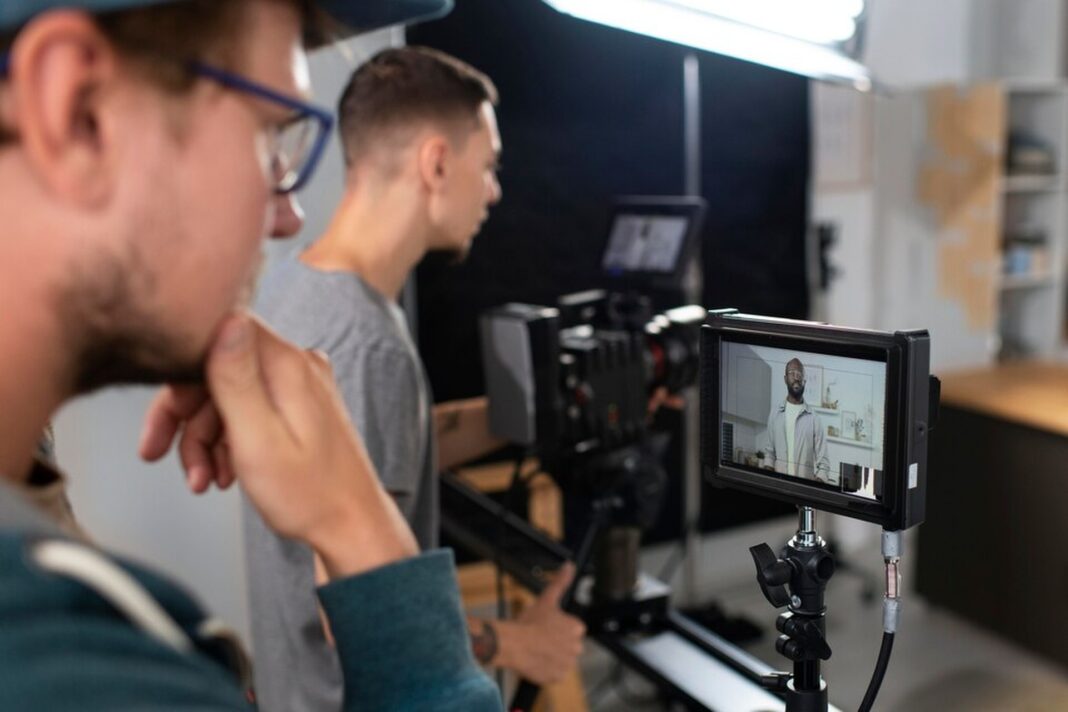Creating a web series is complicated. Every aspect matters from casting to scene setting. Understanding these elements may make a project stand out. Each step affects the final output and understanding them helps improve the narrative. Writers, directors , performers and crew must collaborate. Casting directing, shooting editing and sound design are crucial to web series production. We’ll also explore web series marketing strategies to help you promote a production.
Casting Calls: Finding The Right Actors
The appropriate performers are essential for web shows. Write a concise character description. To find good candidates writers must outline qualities, eccentricities and backgrounds. Open casting calls attract varied talent. The hunt for prospective actors might be expanded online. After submissions auditions follow. What matters is how performers play their roles. Cast harmony is crucial.
This dynamic enhances performances and engages spectators. Casting directors are crucial. They must envisage the complete cast and ensure character harmony. Callbacks further reduce possibilities after auditions. Relaxation is key during callbacks. This enhances actor performance. The ultimate choice should match the series‘ vision. It should bring the screenplay to life authentically and engagingly. The correct cast adds richness to the show story.
Setting The Scene: Location Scouting And Set Design
Location scouting strongly affects the web series‘ look and atmosphere. The correct environment improves the narrative. Producers and directors seek narrative appropriate locales. They explore urban and natural areas. Sites provide the project with distinct vigor. At this point logistics are crucial. Safety permissions and accessibility must be handled.
Once places are acquired, set design starts. A competent designer and director work together to produce a unique style. They match colors, textures and objects to the plot. Detailed attention is essential. Background elements should enhance the story without distracting.
Practical effects may enhance realism. This may include adding character themed or mood related surfaces. After the set is finished lighting is vital. It changes locations and emphasizes emotions. To create an immersive atmosphere. This helps performers behave authentically and captivates audiences. Location reconnaissance and set design define the story.
Directing A Web Series: The Role Of The Director
A director’s vision drives every web series. They interpret the screenplay and direct technical implementation. The director develops the project core via subject and character arc talks. They work closely with authors to preserve the tale. Directors choose tone and tempo during pre production.
They collaborated with cinematographers, sound engineers and editors. Precise communication matters. Directorial leadership is crucial on set. They alter performances to maximize performers‘ potential. Knowing each actor’s abilities enables customized guidance. The director controls filming tension well. Maintaining calmness boosts productivity.
Feedback loops highlight creative synergy in performances. Post production might change the director’s vision. They collaborate with editors to ensure cuts match narrative goals. As the project nears completion audience participation is key. The director’s decisions shape the series‘ plot.
Filming Techniques: Capture The Perfect Shot
Perfecting a shot requires art and science. It starts with a scripted vision. Lighting knowledge is crucial. It may accentuate emotions and activities and change the tone of a situation. The director of photography is crucial. They use narrative enhancing camera angles and framing.
A well planned shot list is made. Its angles and views provide filmmaking versatility. Filming methods differ. Dynamic angles provide excitement while static images give steadiness. Move using dollies or handheld cameras. All choices affect how the audience views the characters and plot.
Composition matters. Framing subjects in their surroundings suggests power and connections. A deeper field adds a layer. It separates the topic and backdrop. This directs attention and improves the narrative. Sound matters too during shooting. Clear speech and ambient noises enhance the experience. Communication among crew members keeps everything in sync throughout shooting. The combination of these methods improves quality.
Editing Magic Bringing: The Footage Together
Raw footage becomes a narrative via editing. Editors choose the finest from several takes. This stage demands rigorous analysis. It involves putting sequences together nicely. Pacing and tension depend on timing. Editors work hard to establish a captivating rhythm.
Transitions color grading and sound mixing enhance the story. Editors work closely with directors. Their input determines the final edit and scene appeal. Making a preliminary cut offers early feedback and revisions. This repeated procedure polishes the series. Each decision affects the story tone.
Slower times must be balanced with action passages. Keep listeners emotionally engaged. Voice and music synchronization influence the series‘ effect. Perfect moments make you laugh or cry. Editing becomes a creative zone where magic occurs. The final clip showcases teamwork and vision.
Sound Design: The Importance Of Audio In Storytelling
Web series narrative relies on sound design. It goes beyond language to create a dynamic audio world. Every audio aspect matters from ambient to effects. Clear dialogue helps people understand character interactions. Background noise gives sets life.
Sound effects enhance narrative events. Designers must properly mix these audio aspects. Well timed sound effects may increase tension or hilarity. Music enhances emotional resonance and sets the scene tone. The director and composer collaborate to get the intended impact.
The story arc is understood and the soundtracks enhance it. Visual and aural synchronization is crucial. Excellent sound design immerses viewers in the world. This synergy puts viewers emotionally into the tale. Silence may also create stunning reflections. Web series creation relies on sound design to influence the story.
Marketing: A Web Series Strategies For Success
Web series marketing involves preparation and execution. Understanding the audience underpins every marketing. This directs marketing and content generation. Social media is essential for fan engagement. Engaging with Instagram, TikTok and Twitter may generate buzz.
Through behind the scenes material viewers may engage with the creative process. Influencer collaborations boost the message. Virtual events and screenings spark conversation. A solid internet presence is crucial. Well designed websites featuring teaser interviews and user generated material may attract visitors. Email marketing informs followers.
Regular release dates and exclusive content updates keep interest high. Collaboration with series related speciality sites helps expand reach. International expansion also offers success. Videos that highlight the show’s uniqueness may reach various audiences. Strategic planning and visual storytelling make effective marketing. These efforts frequently determine success and fanbase.
What Are The Key Steps In The Web Series Production Process?
Web series success requires several phases. Start with a clear idea. Writers create audience friendly screenplays. Producing teams begin pre production when the screenplay is finalized. Budgeting is necessary for resource allocation. After financing, casting calls and auditions begin.
Finding the appropriate personnel is key to good storytelling. Scouting locations ensure they fit the story. The set design enhances the series‘ atmosphere with a visual narrative. With everything ready, shooting starts. This stage brings the screenplay to life requiring collaboration between directors, performers and crew.
To improve the result post production includes editing sound design and color correction. Final marketing techniques promote the online series. Each of these processes involves teamwork and attention to detail which affects project quality and reception.



